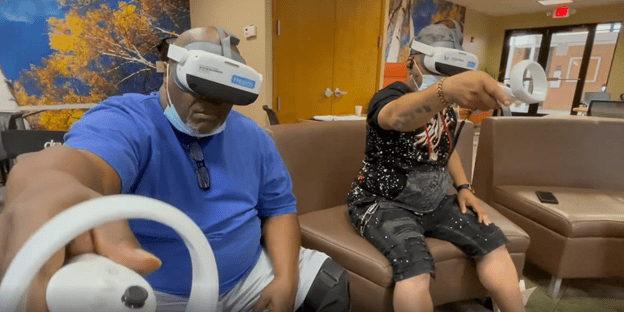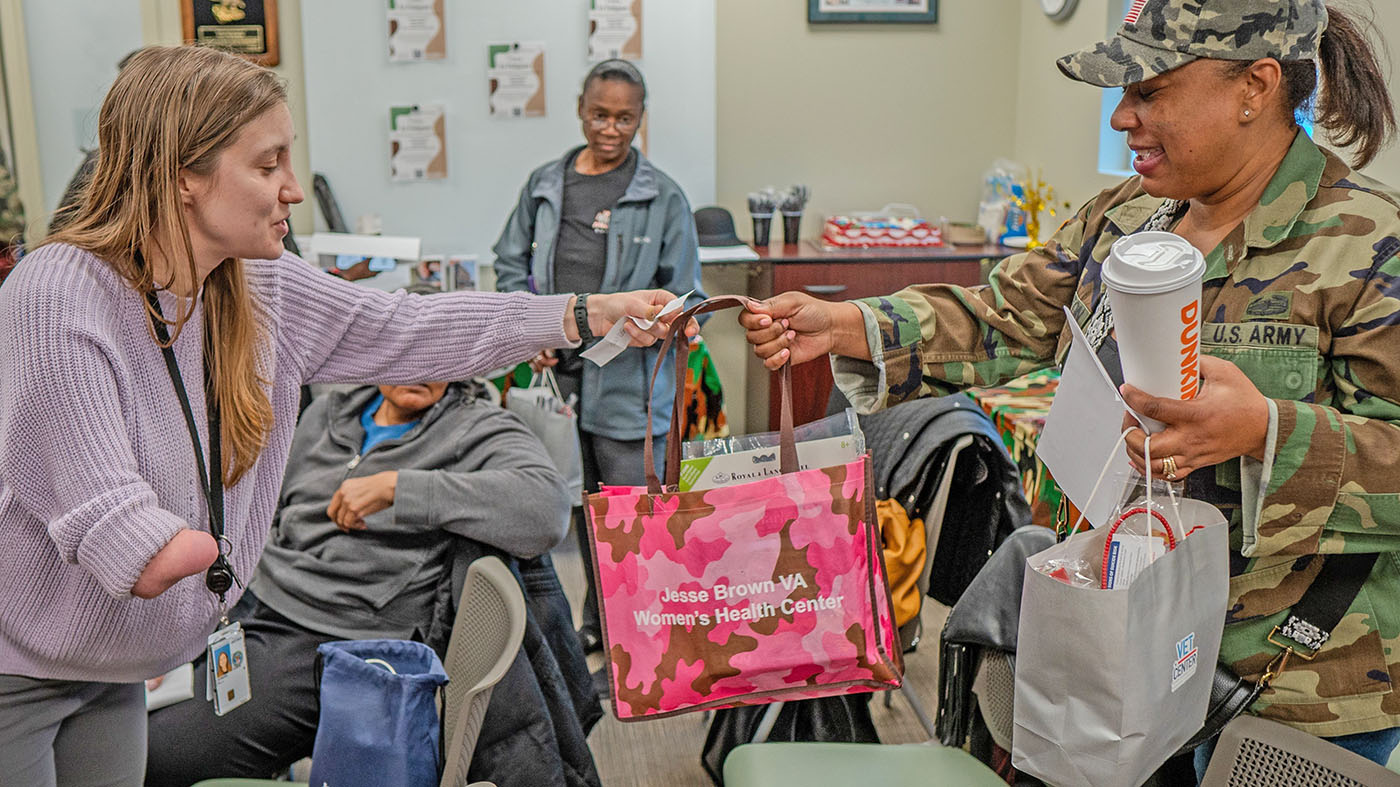While many health care organizations are just beginning to explore virtual reality, augmented reality, and other immersive technology (collectively known as extended reality, or XR), VA is taking the lead in using XR to change how Veterans receive and access their health care.
To advance this forward-thinking capability, VHA’s Office of Healthcare Innovation and Learning (OHIL) hosted its first-ever VA Summer Immersive Summit, in June 2022 at the Simulation Learning, Evaluation, Assessment, and Research Network’s (SimLEARN’s) National Simulation Center in Orlando, FL.
The Summit brought together a collaborative community of VA, academic and industry leaders to share emerging practices and learn how XR offers cutting-edge care to Veterans, while also highlighting the individual and collective efforts of each of OHIL’s core programs: SimLEARN, VHA Innovation Ecosystem (VHAIE), and Center for Care and Payment Innovation (CCPI). By bringing together VA leaders and other subject matter experts to share, network and experience how XR is impacting healthcare, OHIL was able to feature current impact and future potential. The clear message throughout: VA is defining a new reality in healthcare.
“Immersive technology is at the forefront of health care innovation, changing the reality of how we will deliver and experience care across medical disciplines,” said Army Veteran Eric Bruns, who is also the executive director of SimLEARN.
The experts, on immersive technology
Attendees heard from VA employees, like Evan Davis, a recreational therapist at the Roudebush VA Medical Center. Davis is using XR to help the Veterans he cares for overcome both physical and mental barriers by taking them on virtual trips around the world and engaging them in therapeutic XR programs. Likewise, Caitlin Rawlins, a registered nurse and Innovation Specialist from the Western North Carolina VA Healthcare System, as well as a clinical subject matter expert in VA for immersive tech, began using XR to improve her patient’s experience following procedures that required inpatient stays and has now expanded that use to almost every service line in the health care system and to other health care systems across the country.
Throughout each presentation, data was presented showcasing that Veterans who experience XR in the health care setting have reported positive experiences and improved outcomes across a variety of health conditions, and would recommend XR to others. Additionally, VA clinicians are finding that incorporating XR into Veteran care has led to increased receptivity to other, non-pharmacological therapies and interventions. Key stakeholders from across VA and other government agencies, such as NIH, also shared their roles in and experience with immersive technology and health care innovation.
Assistant Under Secretary for Health Dr. Carolyn Clancy and OHIL Chief Officer Ryan Vega participated in a fireside chat with Dr. Walter Greenleaf and Adam Elsesser, where they discussed successes, challenges and opportunities for immersive technology in health care from the balanced perspective of government, academia and industry. Dr. Greenleaf and Dr. Skip Rizzo spoke separately about their decades of experience in research of immersive technology, and Nanea Reeves shared her personal story of life-change that carried her from the gaming industry to leading a mindfulness-focused XR company.
Veteran panel
The most highly anticipated feature of the Summit was the Veteran panel, where Veterans themselves discussed how this new approach to health care has changed, and even saved, their lives. The Veterans shared that using immersive technology gave them the ability to face challenges both at home and in the workplace in ways they couldn’t before.
“I would encourage other Veterans to try it,” said Veteran Rudy Medinia, “because going through the things we do as Veterans… especially us who have gone through drug abuse, alcohol abuse and mental health issues—it takes you out of yourself.”
To learn more about VA’s use of immersive technology, please reach out to VHAXRnetwork@va.gov.
Topics in this story
More Stories
VA Research Advisory Committee on Gulf War Veterans’ Illnesses hosting Veteran Engagement Sessions in Phoenix for 1990-91 Gulf War Veterans.
Navy Veteran and president of the American Medical Association got a colonoscopy and encourages other Veterans to do the same.
Chicago Vet Center and VA gave women Veterans information on VA services available to them.






